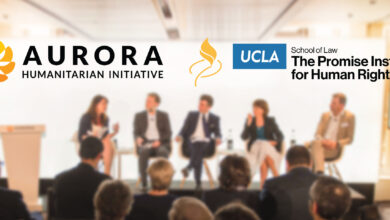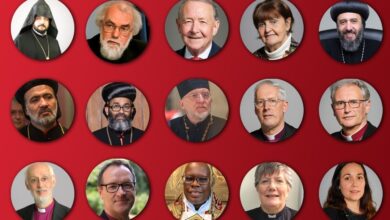Poll finds that 84 percent of the world’s population has religious faith

“Worldwide, more than eight-in-ten people identify with a religious group.” These are the findings of the PewResearchCenter’s Forum on Religion & Public Life, which was a comprehensive demographic study of more than 230 countries and territories, the Catholic Online reports.
“There are 5.8 billion religiously affiliated adults and children around the globe, representing 84 percent of the 2010 world population of 6.9 billion,” the analysis states.
An analysis of more than 2,500 censuses, surveys and population registers came up with this “Global Religious Landscape:”
– 2.2 billion Christians, (32 percent of the world’s population).
– 1.6 billion Muslims, (23 percent).
– 1 billion Hindus, (15 percent).
– 500 million Buddhists. (Seven percent).
– 400 million people (6 percent) practicing various folk or traditional religions, including African traditional religions, Chinese folk religions, American Indian religions and Australian aboriginal religions.
There are 14 million Jews, and an estimated 58 million people, which is less than one percent of the global population – belong to other religions. These include the Baha’i faith, Jainism, Sikhism, Shintoism, Taoism, Tenrikyo, Wicca and Zoroastrianism, “to mention just a few,” the study says.
About half of all Christians in the world are Catholic, 37 percent are part of the Protestant tradition, and 12 percent are Orthodox Greek or Russian.
The largest population of Christians, of 243 million is found, incidentally, in the United States, followed by Brazil, Mexico, Russia, the Philippines, Nigeria and China.
”An interesting thing to remember during this holiday season is the fact that Armenia, the first Christian nation to celebrate Christmas, observes the day in early January,” the Catholic Online writes.
”Armenians celebrate Christmas on the 6th of January, due to the fact that there was an ancient pagan feast day which was a problem, because since most were Christians at that time, paganism, which was the worship of Sun, Moon, Fire, idols etc., was fading out except for this one festival dedicated to light which was called the Festival of Lights.
People could not forget about this festival, so they moved the birth of Christ to December 25th so that the people would start to forget about that pagan feast day. And so it was. However, back in Armenia, this problem did not exist since Armenians had done away with paganism back in the year 301A.D. when Armenia became the first Christian Nation.
So, Armenians celebrate Christmas, Theophany (the Revelation of God) – since when He was baptized in the River Jordan, the heavens opened up and God’s voice said, “This is my beloved Son, with whom I am well pleased.” (Matt. 3:17), and the Baptism of Christ on the 6th of January,” the article reads.








